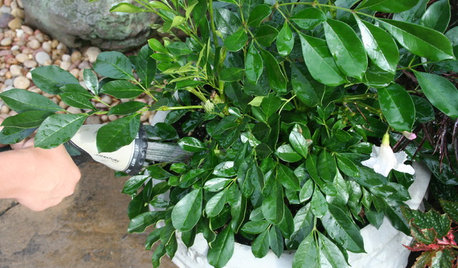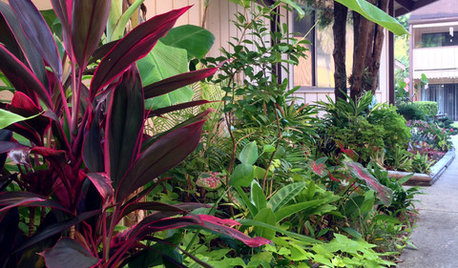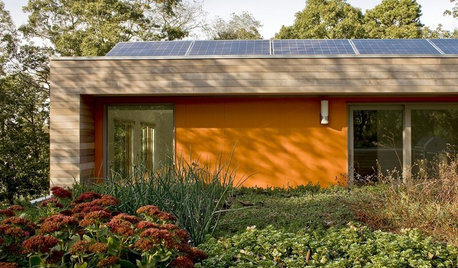help me ammend my soil (with video)
njitgrad
9 years ago
Related Stories

GARDENING GUIDESGardening Solutions for Heavy Clay Soils
What’s a gardener to do with soil that’s easily compacted and has poor drainage? Find out here
Full Story
GARDENING GUIDESHow to Stop Worrying and Start Loving Clay Soil
Clay has many more benefits than you might imagine
Full Story
GARDENING GUIDESHouzz TV: Make a Worm Bin for Rich Soil and Happy Plants
A worm-powered compost bin that can fit under a sink turns food scraps into a powerful amendment for your garden. Here’s how to make one
Full Story
CONTAINER GARDENSContainer Garden Basics: How and When to Water Potted Plants
Confused about soil moisture, the best time to water and what watering device to use? This guide can help
Full Story
EDIBLE GARDENSNatural Ways to Get Rid of Weeds in Your Garden
Use these techniques to help prevent the spread of weeds and to learn about your soil
Full Story
GARDENING GUIDESGet on a Composting Kick (Hello, Free Fertilizer!)
Quit shelling out for pricey substitutes that aren’t even as good. Here’s how to give your soil the best while lightening your trash load
Full Story
GARDENING GUIDESA Mom, a Garden and a Gift for the Neighbors
Gardening can be therapeutic in unexpected ways. See how one gardener found peace and purpose in a patch of Florida soil
Full Story
STORAGE9 Ways to Avoid a ‘Floordrobe’ in Your Bedroom
Repeat after me: The floor isn’t storage space for clothes! Tackle the ‘floordrobe’ effect with these smart tips
Full Story
EVENTSOn Show: Weird, Wondrous Science Meets Design
Houses grown, not built. Power-generating soil. And snail poop that ... well, see for yourself in our coverage of a new Rotterdam exhibit
Full Story
GARDENING AND LANDSCAPING9 Cooling Rooftop Gardens
Living roofs meld home and landscape, help beat the heat and more
Full StoryMore Discussions







njitgradOriginal Author
njitgradOriginal Author
Related Professionals
Edmond Landscape Architects & Landscape Designers · Barrington Hills Landscape Architects & Landscape Designers · Lowell Landscape Architects & Landscape Designers · New Mexico Landscape Architects & Landscape Designers · Berkley Landscape Contractors · Beverly Hills Landscape Contractors · Cornelius Landscape Contractors · Lemay Landscape Contractors · Lemoore Landscape Contractors · Seminole Landscape Contractors · Woodburn Landscape Contractors · Yukon Landscape Contractors · Batavia Decks, Patios & Outdoor Enclosures · Highland Springs Decks, Patios & Outdoor Enclosures · South Miami Heights Decks, Patios & Outdoor Enclosurescold_weather_is_evil
gardenper
njitgradOriginal Author
toxcrusadr
njitgradOriginal Author
johns.coastal.patio
Mackel-in-DFW
Mackel-in-DFW
Mackel-in-DFW
mad_gallica (z5 Eastern NY)
johns.coastal.patio
njitgradOriginal Author
Mackel-in-DFW
Mackel-in-DFW
Mackel-in-DFW
njitgradOriginal Author
Mackel-in-DFW
Mackel-in-DFW
Mackel-in-DFW
njitgradOriginal Author
Mackel-in-DFW
Mackel-in-DFW
Mackel-in-DFW
johns.coastal.patio
Mackel-in-DFW
johns.coastal.patio
njitgradOriginal Author
johns.coastal.patio
johns.coastal.patio
johns.coastal.patio
Mackel-in-DFW